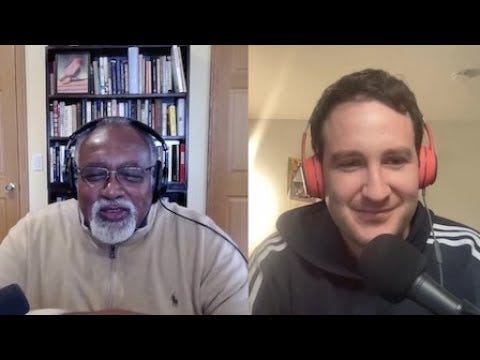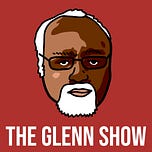In this week’s TGS, I’m joined once again by intellectual historian Daniel Bessner. Given Daniel’s area of scholarly expertise—US foreign relations—it should be no surprise that the recent withdrawal from Afghanistan colors our discussion. But we range much further than that. We debate Daniel’s conception of “American empire” and its origins in the Cold War. He is quite critical of American foreign policy during that period (and beyond), and I do push back on some of his more pointed critiques. We go on to discuss the course of America’s engagement with the world after the Cold War’s end, and Daniel offers a theory as to why the 1990s saw so much popular interest in World War II. We move on to discuss climate change as a particular kind of foreign policy problem. I out myself not exactly as a “climate skeptic,” but as someone who thinks we may be panicking prematurely. And yet, I think that changes in the climate may force us to radically rethink where and how we find meaning in our lives. Finally, since we’re both professors, we talk about Covid and the state of the modern university.
As you’ll see, Daniel and I have some very stark disagreements. But he’s a sharp, erudite, and good-natured debating partner, and it’s always a pleasure having him on the show. And if you’re intrigued by his arguments, subscribe to his podcast, American Prestige. I’m sure you’ll have some comments on this one, and I’m looking forward to reading them.
This post is free and available to the public. To receive early access to TGS episodes, Q&As, and other exclusive content and benefits, click below.
0:00 Daniel’s new podcast, American Prestige
10:22 Did the US needlessly prolong the Cold War?
14:59 Daniel: The Cold War actually limited political liberty within the US
21:27 The cultural logic of American empire
32:59 Global inequities and existential threats
40:52 The spiritual challenges of climate change
50:34 Glenn: Capitalism is “the natural order of things”
55:23 What Covid reveals about the modern American university
Links and Readings
Daniel’s new podcast, American Prestige
Paul Thomas Chamberlin’s book, The Cold War’s Killing Fields: Rethinking the Long Peace
Daniel Rodgers’ book, Atlantic Crossings: Social Politics in a Progressive Age
Peter Novick’s book, The Holocaust in American Life
Peter Novick’s book, That Noble Dream: The “Objectivity” Question and the American Historical Profession
Roosevelt Montás, Rescuing Socrates: How the Great Books Changed My Life and Why They Matter for a New Generation















Share this post